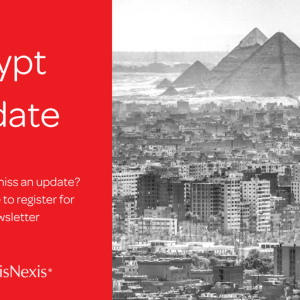
Saudi Arabia:Money Laundering and Terrorist Financing
Saudi Arabia’s Monetary Authority has announced new money exchange business regulations have been approved. They are aimed at tackling money laundering and terrorist financing as well as protect clients.
They will come into force 30 days after they are issued and allow hotels, hotel apartments and tourist offices to exchange currencies from their customers provided these currencies are sold to a licensed bank or exchange centre and national anti-money laundering provisions and UN Security Council resolutions on the spread of weapons of mass destruction and their financing are complied with.
Licensed money changers will only be able to buy, sell and circulate foreign currencies and import and export currencies. They will be licensed by the Monetary Agency.
Exchange shops should not carry out any activities which they are not licensed to. This includes any other commercial business not approved by the Agency, opening current accounts, investment accounts, savings accounts, or any other accounts for their clients or employees. In addition, they should not issue letters of guarantee or open documentary credits or guarantees, lease safes, accept deposits or speculate in currencies, metals and stocks.
In addition, they have to comply with Saudisation requirements, contract with employment services companies regarding working hours, official holidays, appointments to leadership positions and provide an administrative structure which includes all departments and jobs. This structure has to specify the tasks of departments and individual duties and responsibilities. A compliance officer also has to be appointed.
Exchanges must set an appropriate framework to protect customers from fraud and loss of privacy and comply at all times with clear signs for the public indicating customer rights and provide clear channels to receive complaints and address them within seven days.
Exchanges also have to commit to anti-money laundering and terrorist financing instructions, identify, document and address risks and develop and implement appropriate and appropriate policies capital. In addition, they have to have two million Riyals in paid up capital. This is 7 million for payments to Centres who import and export cash have to have seven million Riyals in liquidity and centres authorised to transfer funds outside the Kingdom have to have 10 million Riyals. They also have to keep a cash reserve of between 5 and 10%.
Licenses will be valid for five years and may be renewed. If a license is being renewed, it has to be done six months before the license is due to expire. They have to commit to carry out the activity in a suitable location, not use the word bank or bank, identify suspicious and fraudulent transactions and comply with the risk management policy. They also have to record all operations in the automated system and maintain confidentiality of information.
In terms of attribution to a third party, an approved policy, which is periodically reviewed, has to exist and there should be no obstacles to accessing their data. They must also be licensed to practice their commercial activity.
When it comes to importing and exporting currencies, there have to be customs notifications at border crossings, all documents for the importing and exporting of currencies have to be kept and funds have to be prepared in an appropriate way before they are transferred.
Exchanges also have to comply with all Monetary Agency instructions in terms of consumer protection and transaction receipts. They also have to ensure currency rates are clearly on display and resolve complaints within a week.
They should ensure their confidential information is not disclosed. Periodic data has to include the location of the head office, branches, and other entities, holders of leadership positions and their job titles, a list of employee data and names, suspension or restriction of services. If they do not, their license will be temporarily suspended.
Their exchange permit will be cancelled if they do not meet the requirements of the regulations, if one of the license conditions is lost, if its information is found to be incorrect or if the centre harms its clients or the public interest. Their permit will also be cancelled if the inspection team is prevented from performing its task or if it refuses to provide the Agency with the requested documents.

















